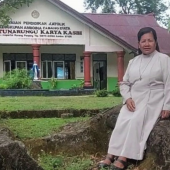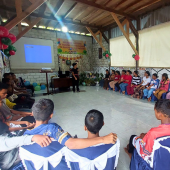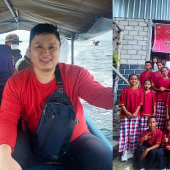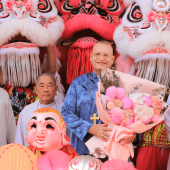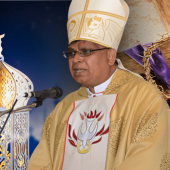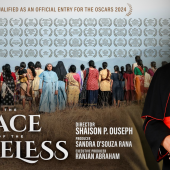Indonesian young women, men refute practice of female genital mutilation and circumcision
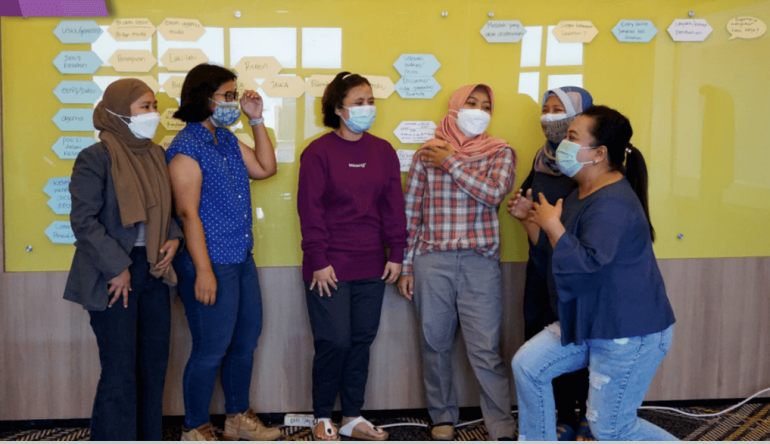
Indonesian young women and men refuted the practice of Female Genital Mutilation and Circumcision (FGM/C), says a research paper in January 2022 released by the Indonesian Young Women Activist Forum (FAMM Indonesia).
The said practice has no medical benefit and was an act of violence that involved torture, the study revealed.
Furthermore, the research finding says, "there is no consent from the child."
The research's undertaking lies in the fact that the practice of FGM/C in Indonesia has often been done behind closed doors and, in some places, it is considered normal.
The researchers tracked for ten months to build a story about the adverse effects and ways to avoid FGM/C.
FAMM Indonesia says it is essential to learn how this practice is known, understood, and used first.
The researchers chose Lampung and Southeast Sulawesi as the locations of the study since these areas are known to be associated with high fundamentalism and are suitable for young urban women who are domiciled in or were born and raised in villages with solid traditions and cultures.
One hundred seventeen people, ages 18 to 35, have seen, done, or heard about female circumcision. Most of the people who took part in the research live in Lampung and Southeast Sulawesi.
This group was made up of young women and men who were clients of FGM/C prevention programs and young people who could become clients in the future.
The research identified that they worked with religious groups and prominent individual clerics, who had a lot of power in the Muslim community.
The research aimed to understand the causes and consequences of FGM/C based on the knowledge and experience of young women and young people's opinions about FGM/C.
The study also explores the attitudes and behaviors of community members and religious or community leaders regarding FGM/C and identifies youth's potential actions and involvement to reduce FGM/C, the research added.
The research found that FGM/C in Lampung is mainly carried out on infants aged 40 days. Some clinics or hospitals offer piercings and FGM/C as part of the package.
Another part of the study, Southeast Sulawesi, was where the researchers found that FGM/C was done on children between 4 and 11.
Young men between 18 and 35 were also a part of the research. They were used as support resources for health workers, traditional leaders, religious leaders, and community leaders.
According to the research, "most of the informants who supported the research denied that there was a relationship between FGM/C and the prevention of sexually transmitted diseases and that there was no impact on health."
According to the study, families and parents should be told that FGM/C does not have any medical benefits and is not a religious command in Islam, which is a majority religion in Indonesia.
The FAMM’s research suggests that young women make popular content for social media and teach young people about FGM/C practices.
FAMM is a women's group dedicated to strengthening young activists' capacity to sustain the grassroots women's movement. The group's goal is to help young feminists build a gender-just, strong, and independent social movement with their help.
In commenting on the results of the study, Yuli Nugrahani, Head of the Justice and Peace Commission and Pastoral Migrants for Migrants (KKPPMP), Tanjungkarang Diocese, Indonesia, said that female circumcision in the form of genital cutting or wounding must be done away with.
She said that there are no physical, reproductive, or psychological health benefits based on previous research by experts.
What happened, continued Nugrahani, was the danger of infection when it was done and the risk of subsequent genital organ development.
Nugrahani thinks that the findings from this Indonesian FAMM study should be spread to the people through socialization and education, to midwives or traditional birth attendants, who have the chance to be asked for help by the family.
"Health education to families or the community, at least minimizing it, is done haphazardly without paying attention to health and comfort aspects," which is why it is so essential, Nugrahani concluded.
Radio Veritas Asia (RVA), a media platform of the Catholic Church, aims to share Christ. RVA started in 1969 as a continental Catholic radio station to serve Asian countries in their respective local language, thus earning the tag “the Voice of Asian Christianity.” Responding to the emerging context, RVA embraced media platforms to connect with the global Asian audience via its 21 language websites and various social media platforms.









